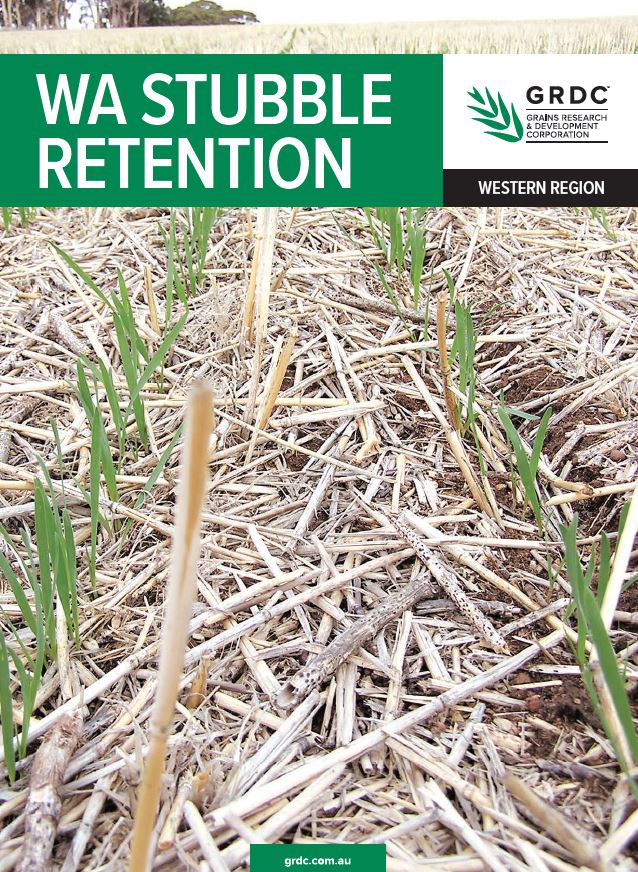WA Stubble Retention booklet
WA Stubble Retention booklet
Published: 15 Aug 2023
Conservation agriculture is a system of sustainable land management aimed at protecting soil from erosion and degradation, improving soil quality and biodiversity and preserving natural resources, while simultaneously maximising crop yields (Climate-ADAPT, 2020). Its four main principles are:
1. Minimising soil disturbance from cultural or mechanical operations;
2. Maintaining permanent or semi-permanent soil cover with crop residues;
3. Implementing diverse crop rotations; and
4. Reducing compaction by practicing controlled-traffic farming.
One of the core practices of conservation agriculture, stubble retention, confers multiple benefits to growers, including increased soil moisture retention, reduced wind erosion and run-off, lower evaporation and higher infiltration rates. However, stubble retained systems can also present challenges. High stubble loads can increase the risk of blockages occurring at sowing, reduce the efficacy of pre-emergent weed control, and affect crop emergence and establishment. Stubble retention can also lead to disease and weed issues if not managed properly.
Want a hard copy?
GRDC produces a range of publications to share the RD&E knowledge generated from our investments with grain growers and the broader industry.
Printed publications
Printed copies of some publications are available for growers, advisers and farming systems groups, for personal use and distribution at GRDC events.
Contact GroundCover Direct on 1800 11 00 44 or email ground-cover-direct@canprint.com.au to request copies. Publications are free but postage and handling costs may apply.
Download PDF
Region: West
GRDC Project Code: WAN2004-001SAX,

